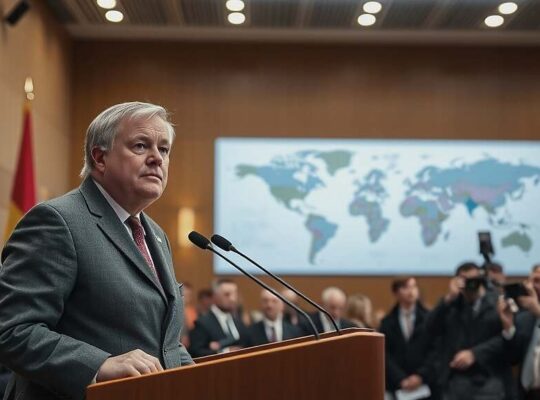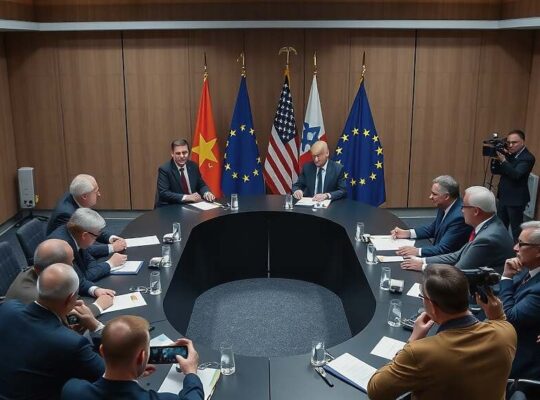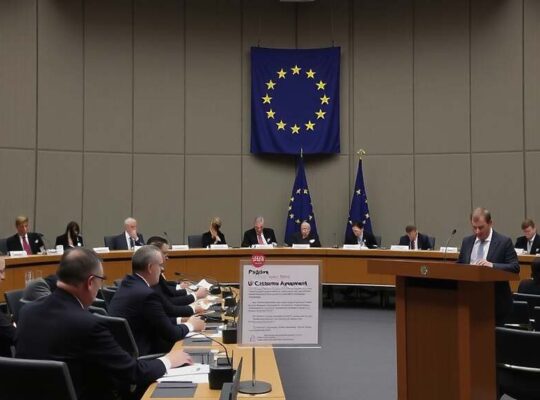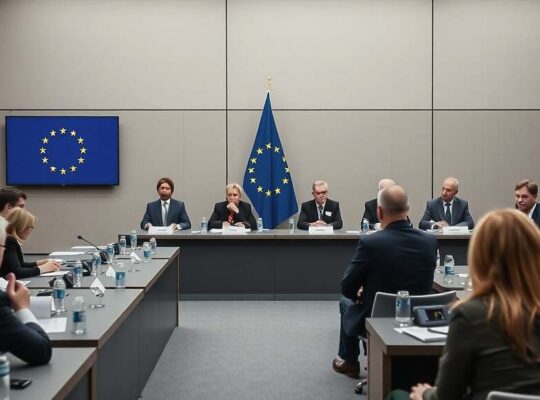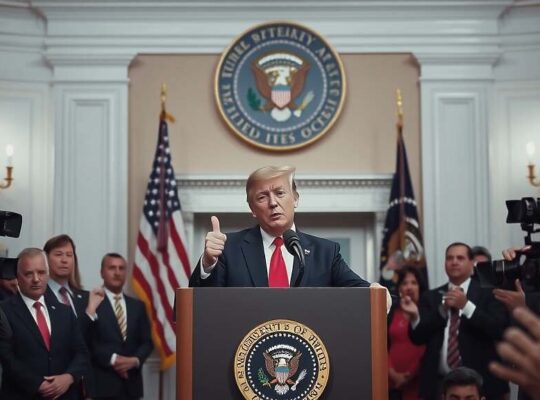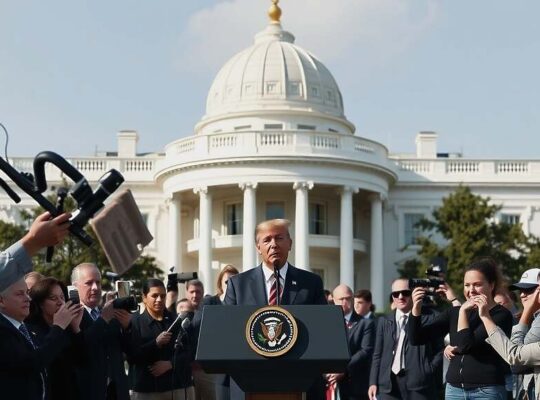The United States is poised to abruptly halt all trade negotiations with Canada, a move triggered by what President Donald Trump has characterized as an egregious attempt by Ottawa to manipulate US judicial decisions through politically charged advertising campaigns. The escalating dispute underscores a rapidly deteriorating relationship and raises serious questions about the future of North American trade.
Trump’s announcement follows the emergence of television advertisements originating in Canada, critical of US tariffs and perceived by the administration as a deliberate effort to influence rulings from the Supreme Court and other US courts. He specifically referenced a campaign allegedly utilizing a misrepresentation of a Ronald Reagan Presidential radio address, claiming it was produced for a cost of $75,000 with the explicit intent of undermining US policy. The Ronald Reagan Presidential Foundation & Institute corroborated Trump’s assertion, stating that the Ontario government-produced advertisement distorted Reagan’s 1987 speech promoting free and fair trade and that permission to utilize his likeness and words had not been granted.
The timing of the move appears strategic, following statements by Canadian Prime Minister Mark Carney, who recently signaled intentions to double Canadian exports to markets outside the United States as a hedge against the unpredictable implementation of US tariffs. Carney’s ambition highlights a growing Canadian resolve to diversify its economic dependence on its southern neighbor.
Analysts are interpreting Trump’s decision not merely as a transactional dispute over trade policy, but as a manifestation of a broader pattern of increasingly confrontational rhetoric toward Canada. The President has consistently framed trade disagreements and now judicial influence claims, as matters of national security, bolstering his justification for aggressive tariff measures.
The move risks spiraling into a protracted trade war, potentially damaging both economies and disrupting global supply chains. While the White House insists the tariffs are essential for American prosperity and security, critics argue they are a thinly veiled protectionist measure, executed with disregard for international trade norms and diplomatic protocols. The alleged exploitation of Reagan’s legacy to achieve overtly political ends further intensifies the controversy, raising ethical concerns about the manipulation of historical figures for contemporary political gain. The dispute also amplifies the increasingly precarious nature of US-Canada relations, prompting observers to question the long-term stability of the established trade framework.



